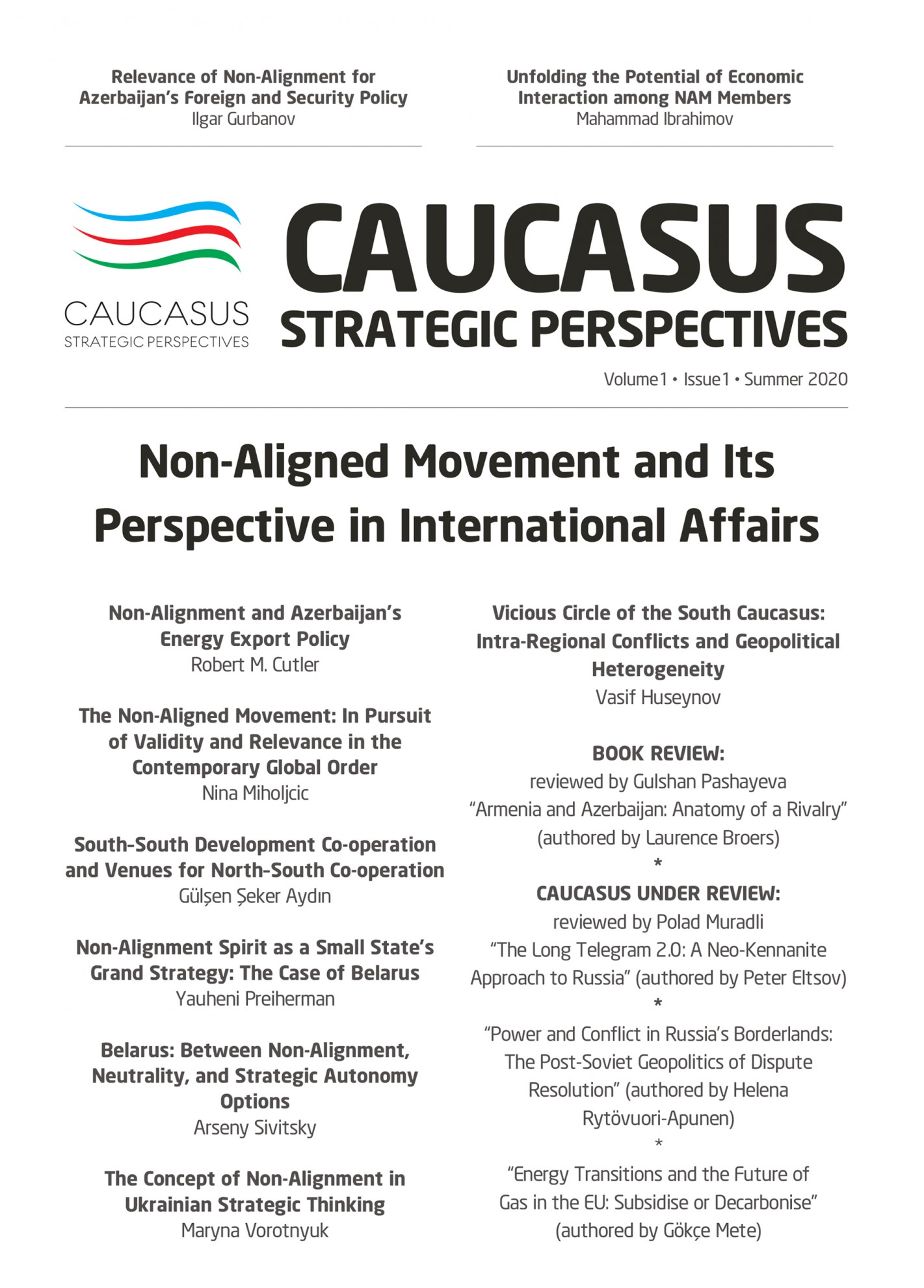Non-Alignment Spirit as a Small State’s Grand Strategy: The Case of Belarus
This paper argues that, when structural conditions in international relations are increasingly shaped by great power confrontation and, thus, produce heightened risks and uncertainties for the small states that sit in-between competing great powers, such small states naturally turn to non-alignment ideas, even when existing institutional affiliations (i.e., membership of collective security organizations) prevent them from pursuing fully-fledged non-alignment policies. In that case, their overall foreign and security policy behaviour tends to be driven by the non-alignment spirit – that is, the concept of the ‘non-use of collective defence pacts to benefit the specific interests of any of the great powers.’ The non-alignment spirit thus effectively becomes the foundation of their grand strategy, even as small states might remain formally aligned. The paper analyses Belarus’s foreign and security policies in the context of two post-Cold War structural shifts as a case study.
Latest news
- 12/27/2024 Call for Submissions-Caucasus Strategic Perspectives, Volume 6, Issue 1, Summer 2025 667 views
Popular articles
- 07/18/2022 The Russia–Ukraine War: Perspective of Azerbaijan 4322 views
- 10/14/2020 The Non-Aligned Movement: In Pursuit of Validity and Relevance in the Contemporary Global Order 3307 views
- 10/14/2020 Vicious Circle of the South Caucasus: Intra-Regional Conflicts and Geopolitical Heterogeneity 3290 views
- 10/14/2020 Relevance of Non-Alignment for Azerbaijan’s Foreign and Security Policy 3019 views





